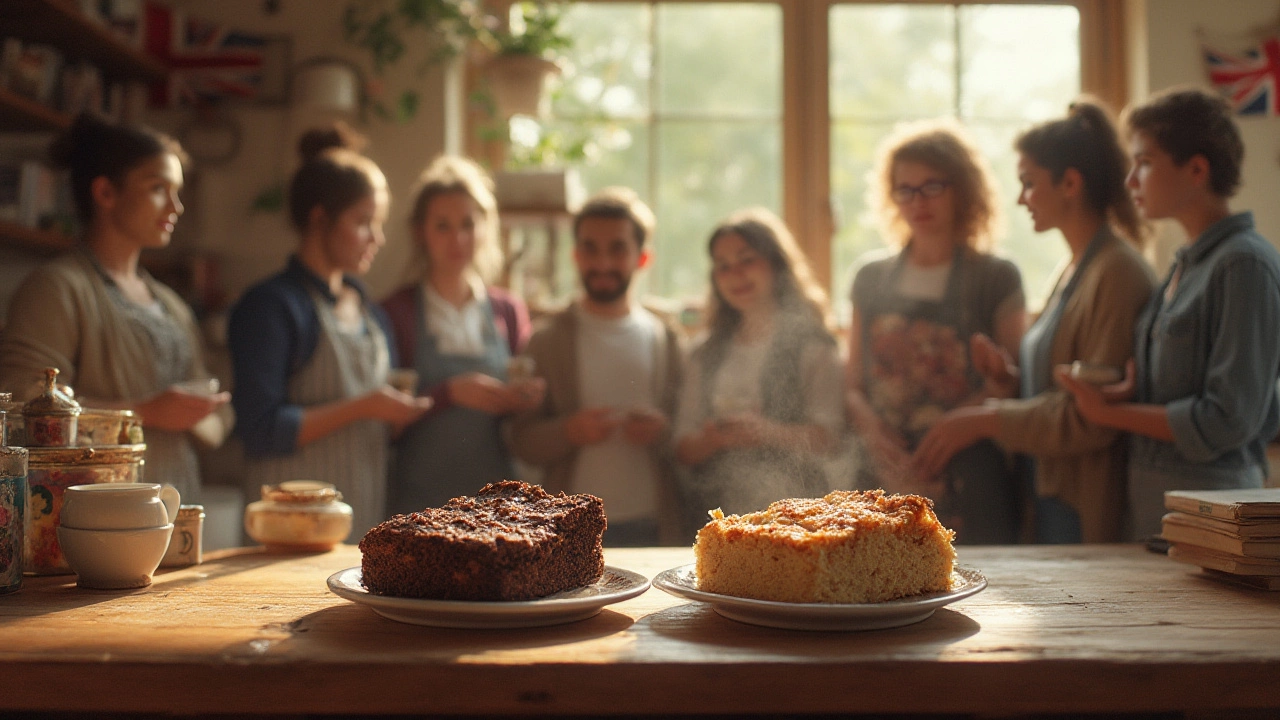
Brownies: Should They Be Fudgy or Cakey? Ultimate Guide
Are brownies supposed to be fudgy or cakey? This guide covers the science, preferences, baking tips, and recipes to master your perfect brownie texture.
If you love the soft, cake‑like crumb of a good brownie, you’re in the right place. Cakey brownies sit between a fluffy cake and a fudgy bar, giving you the best of both worlds. Below you’ll find quick recipe ideas, a rundown of brownie styles, and smart ways to store them so they stay fresh.
Start with a basic batter: 1 cup melted butter, 1 ½ cups sugar, 2 eggs, 1 tsp vanilla, 1 cup flour, ½ cup cocoa powder, and a pinch of baking powder. Mix until smooth, pour into a greased pan, and bake at 350°F (175°C) for 20‑25 minutes. The baking powder is the secret – it lifts the batter just enough to create a light, airy crumb.
Want a twist? Add ½ cup chocolate chips for extra melt‑in pockets, or swirl in a spoonful of peanut butter for a salty bite. For a veggie boost, fold in shredded carrots or zucchini; they add moisture without altering the flavor.
Classic cakey brownies use a higher flour‑to‑fat ratio and a leavening agent. They’re perfect for layering in desserts or cutting into neat squares for a party.
Fudgy brownies skip the baking powder and rely on more butter and chocolate. They’re dense and glossy – great for topping with ice cream.
Vegan or gluten‑free cakey brownies swap regular flour for a gluten‑free blend and replace eggs with applesauce or flax‑egg. The texture stays tender, and you won’t miss the dairy.
Knowing the style helps you match the brownie to the occasion. A light cakey brownie pairs well with fresh fruit, while a rich fudgy bar shines with a drizzle of caramel.
The biggest mistake is storing brownies in the fridge without a barrier. Air dries them out fast. Instead, let them cool completely, then place a sheet of parchment between layers and store in an airtight container. This method locks in moisture for up to four days.
If you need to keep them longer, wrap each piece tightly in plastic wrap and freeze. They’ll stay good for three months. To thaw, move them to the fridge for a few hours, then bring to room temperature before serving.
For frosted brownies, cover the frosting with a thin layer of foil before sealing the container. The foil prevents the frosting from sticking to the lid and keeps the glaze glossy.
Don’t overmix the batter – a few streaks are fine. Overmixing develops gluten, which makes the brownies tough instead of tender.
Use quality cocoa powder. Natural cocoa gives a brighter flavor, while Dutch‑processed cocoa yields a deeper, smoother taste. Choose based on the flavor profile you prefer.
Finally, test for doneness by inserting a toothpick. For cakey brownies, it should come out with a few moist crumbs, not dry batter.
With these recipes, style guides, and storage hacks, you can whip up cakey brownies that look good, taste great, and stay fresh longer. Time to bake your next batch and share the sweet goodness!

Are brownies supposed to be fudgy or cakey? This guide covers the science, preferences, baking tips, and recipes to master your perfect brownie texture.